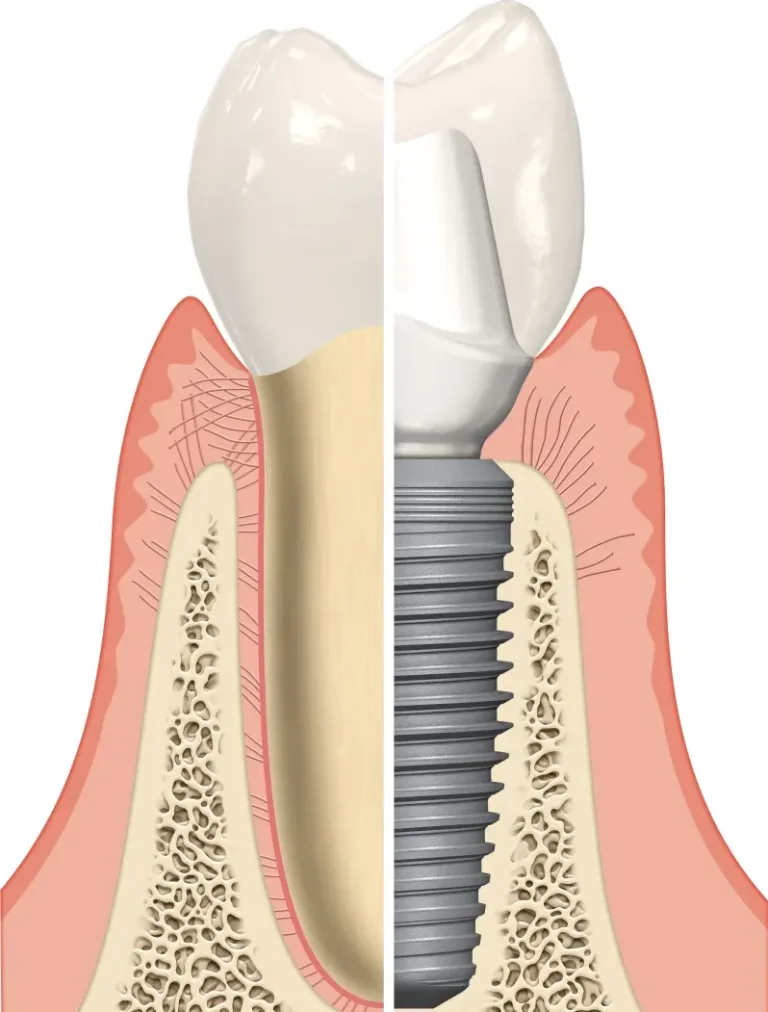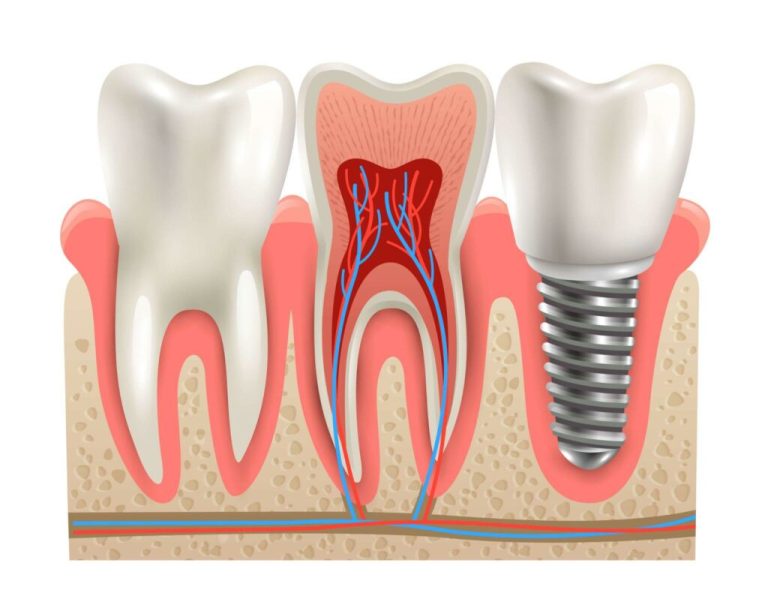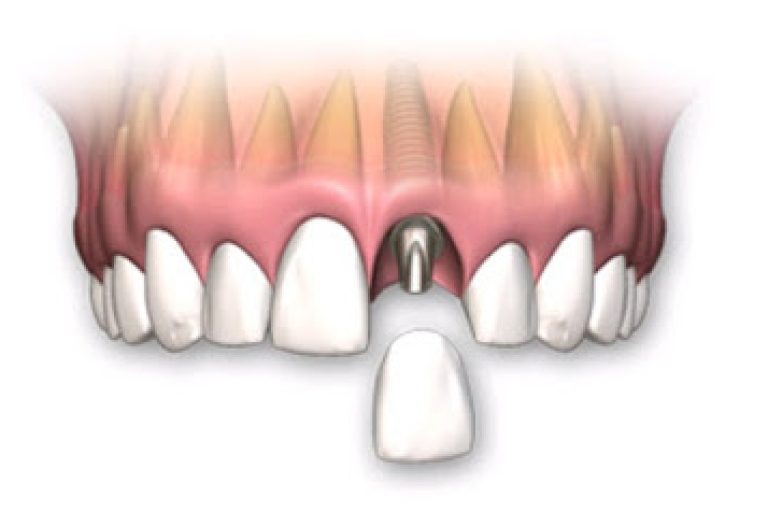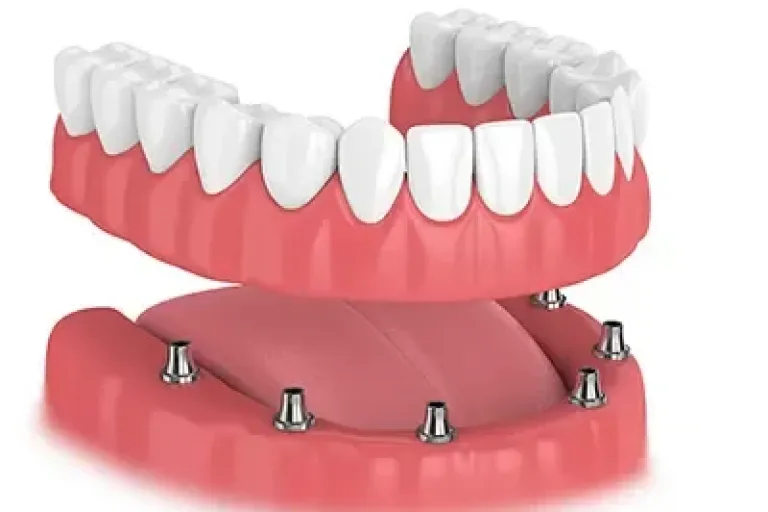Dental Implants
Dental implants, simply put, are a healthy youthful appearance for missing teeth. Drs. Warren & Hardee are dedicated to providing each patient with the best solution to their oral health, which is why they often recommend dental implants over other restorations.
Losing teeth can be a traumatic experience, so our focus is on replacing those teeth with proven, minimally-invasive techniques that allow our patients to regain maximum use of their teeth while maintaining jaw strength, a natural appearance, and restored function.
Replacing a Missing Tooth
A natural tooth is anchored into the jawbone by its tooth root. Tooth roots attach firmly to the jawbone and keep your teeth stable when chewing solid foods.
Traditionally, if you were missing a tooth or if one needed to be extracted, the healthy teeth on either side of the missing tooth would be cut down and replaced with a three-unit “bridge.”






